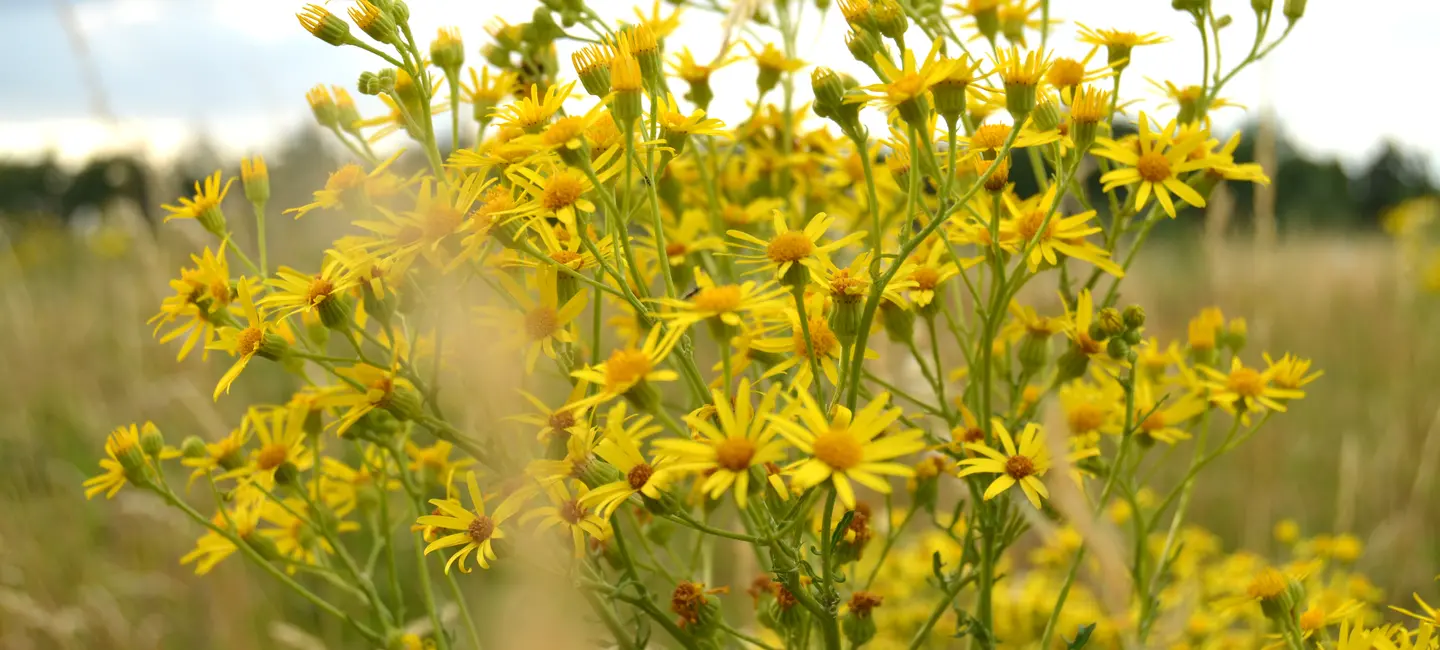
Groundsel (Senecio vulgaris) is a weed found in moderate climates worldwide. It contains dangerous chemicals called pyrrolizidine alkaloids (PAs).
The PAs in groundsel can cause severe liver damage. PAs might also cause cancer and birth defects.
Despite serious safety concerns, some people use groundsel for colic, menstrual cramps, epilepsy, parasite infections, and other conditions, but there is no good scientific evidence to support these uses.
Is It Effective?
There is interest in using groundsel for a number of purposes, but there isn't enough reliable information to say whether it might be helpful.
Is it Safe?
When taken by mouth: Groundsel is likely unsafe. It contains chemicals called pyrrolizidine alkaloids (PAs). These chemicals might block blood flow in the veins, causing liver damage. PAs might also cause cancer and birth defects. There isn't enough reliable information to know if it's safe to use products that are certified PA-free. All products should be considered likely unsafe.
When applied to the skin: Groundsel is likely unsafe. The dangerous PAs in groundsel can be absorbed through broken skin and cause toxicity. There isn't enough reliable information to know if it's safe to apply groundsel products that are labeled PA-free.
Special Precautions & Warnings:
Pregnancy: Groundsel is likely unsafe when taken by mouth during pregnancy. These products might contain dangerous PAs, which can cause birth defects and liver damage. There isn't enough reliable information to know if it's safe to use products that are certified PA-free. Stay on the safe side and avoid use.
Breast-feeding: Groundsel is likely unsafe when taken by mouth while breast-feeding. The dangerous chemicals in groundsel can pass into breast-milk and might harm the nursing infant. There isn't enough reliable information to know if it's safe to use products that are certified PA-free. Stay on the safe side and avoid use.
Allergy to ragweed and related plants: Groundsel might cause an allergic reaction in people who are allergic to the Asteraceae/Compositae plant family. Members of this family include ragweed, chrysanthemums, marigolds, daisies, and many others.
Liver disease: The PAs in groundsel might cause liver damage and make liver disease worse.
Medications that increase break down of other medications by the liver (Cytochrome P450 3A4 (CYP3A4) inducers)
Interaction Rating=Moderate Be cautious with this combination.
Groundsel is changed and broken down by the liver. Some drugs increase how quickly the liver changes and breaks down groundsel. This could increase the risk of serious side effects of groundsel.
Herbs that increase the breakdown of other herbs by the liver: Groundsel contains pyrrolizidine alkaloids (PAs), dangerous chemicals that can harm the liver. Some supplements might increase how quickly these chemicals are broken down. Taking groundsel along with supplements that have this effect might increase the risk of serious side effects from groundsel. Examples of supplements with this effect include echinacea, garlic, licorice, schisandra, and St. John's wort.
Pyrrolizidine alkaloids (PAs)-containing herbs and supplements: Groundsel contains PAs, dangerous chemicals that can harm the liver. Taking it along with other supplements that also contain these chemicals might increase the chance of developing serious side effects, including liver damage and cancer. Examples of supplements containing PAs include alkanna, butterbur, coltsfoot, and comfrey.
There are no known interactions with foods.
There isn't enough reliable information to know what an appropriate dose of groundsel might be. It might also be unsafe. Speak with a healthcare provider before use.
Cineraria, Common Groundsel, Flor Amarilla, Ground Glutton, Grundy Swallow, Hierba Cana, Petit Séneçon, Senecio Común, Senecio vulgaris, Séneçon Commun, Séneçon Vulgaire, Simson, Yuyito.
Information on this website is for informational use only and is not intended to replace professional medical advice, diagnosis, or treatment. While evidence-based, it is not guaranteed to be error-free and is not intended to meet any particular user’s needs or requirements or to cover all possible uses, safety concerns, interactions, outcomes, or adverse effects. Always check with your doctor or other medical professional before making healthcare decisions (including taking any medication) and do not delay or disregard seeking medical advice or treatment based on any information displayed on this website.
© TRC Healthcare 2024. All rights reserved. Use and/or distribution is permitted only pursuant to a valid license or other permission from TRC Healthcare.
